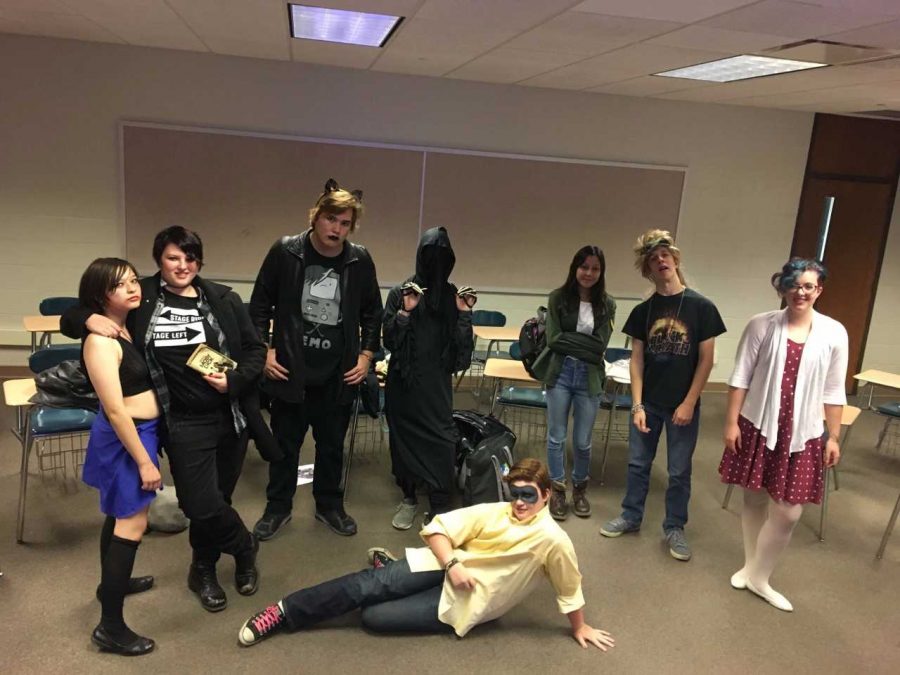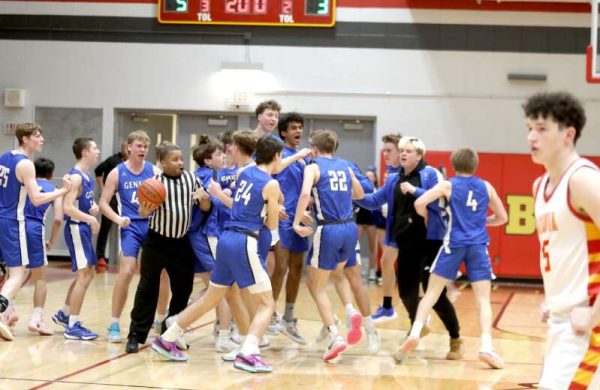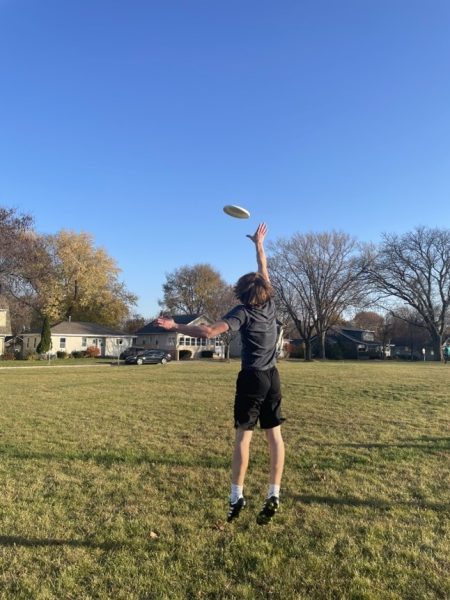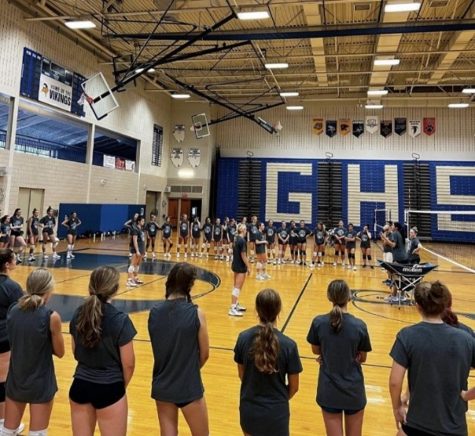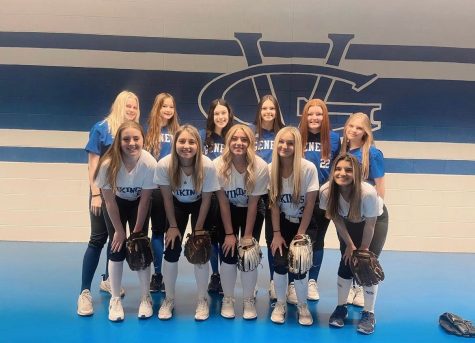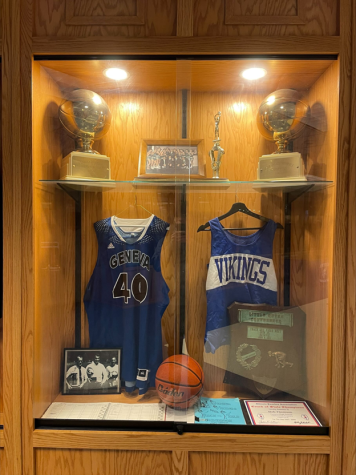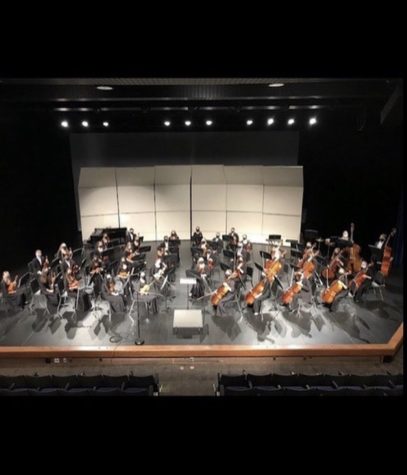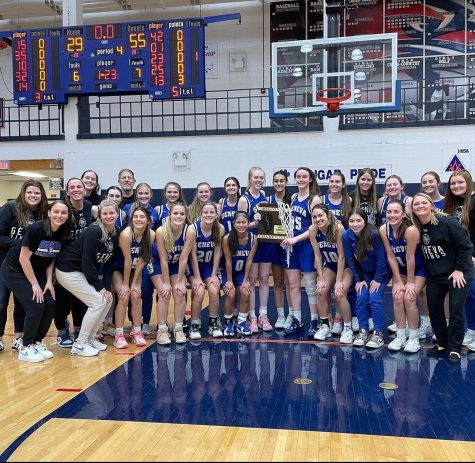“Alt Er Love”
GHS, or any public high school for that matter, is a colorful amalgamation of kids with distinctive passions and unique talents. Our halls are always bubbling with energetic conversations concerning the latest television show, or fiery debates that dive deep into the philosophies of Hobbes vs. Locke. Each student that attends GHS is an entirely uncommon individual; every student has different backgrounds, different identities, and different ways of looking at life.
However, for a fraction of students, they face the daily worry of being accepted or excluded by their peers, simply because of their uniqueness. Such students that are subjected to this treatment are anyone that is part of a minority in our community; these students are often ridiculed and their uniqueness scorned simply because of their race, social standing, sexual and gender identities, and much more. All of these topics need to be addressed individually, and awareness raised about all of the struggles that students go through on a daily basis, but this article is dedicated to the discrimination against LGBT+ kids in GHS.
Before we can begin to raise awareness about the bigotry and derision that often follows LGBT+ students in GHS, one would need to understand the injustices that the LGBT+ community faces as a whole. There is a plethora of events that have shaped the LGBT+ community, and have transformed the world as we know it. One of the earliest known queer activists was Henry Gerber, a German immigrant that emigrated to America in 1913, and later founded the Society for Human Rights in Chicago, which is “the first American homosexual rights organization and a precursor to the modern gay-liberation movement. The group published a newsletter, ‘Friendship and Freedom,’ the country’s first documented gay civil-rights publication,” according to the Chicago Tribune article, “First gay rights group in the US (1924).”
Another crucial event in LGBT+ history was the police raid on Stonewall, a gay bar in Greenwich Village, New York, in 1969. Brutal and completely bigoted police raids were a regular occurrence in big cities like New York; however, this particular raid on Stonewall and the fervent riots that flared in response, and spilled into the streets of Greenwich were the sparks of resistance that the LGBT+ community needed to change the way the world viewed the ever-growing community.
These two instances are just some of many influential events that have shaped the LGBT+ community into the diverse and beautiful group of people that it is today. This community is not limited to a certain demographic of people; young and old, black and white, wealthy or poor. The diversity of the LGBT+ community can even be found in our very own Geneva high school.
The LGBT+ community is represented at GHS through the absolutely amazing club GSA, or the Gay-Straight-Alliance. The GSA is a culmination of different kids with different identities and diverse ways of viewing life. This club is completely accepting of people no matter their sexuality or differences. Another staff member and I interviewed GSA on a series of LGBT+ topics, relating to issues kids face on a daily basis concerning their identities, their presence in the school environment and whether or not they feel accepted by their peers, and their internal struggles with self-acceptance. The answers to these questions were definitely varied, each student having a different views and different experiences that shape the way they view the people around them. One question in particular brought an assortment of answers from the diverse group of kids; when asked how open they are with their identity at school, one student responded with great spirit, “95% open…because I feel loved,” while in comparison another stated, “I don’t feel like I could be open and myself, the school is not accepting.”
When faced with the subject of issues that LGBT+ kids face on a daily basis, GSA members offered their personal experiences with their lips set in hard lines. “People being misgendered on purpose or someone using the wrong pronouns,” and “using gay as a kind of slur or another word for stupid,” are just a portion of the issues that LGBT+ kids endure while under the roof of GHS.
The question of whether or not schools should preach acceptance and bring more awareness to LGBT issues resulted in numerous surprising and conflicting responses;
“If the schools actually present this to the students, will they treat it as a joke just like any other presentation the school gives?” said one student, offering a conflicting side to the supposed easy-answer question. Another member of GSA offered;
“I’m trying to say yes, but at the same time I’ve heard a lot of people who have, when that kind of thing was brought up they treated it like a joke. Honestly, it’s already hard enough for me to deal with it as an all the time thing.” The idea of raising awareness in schools about LGBT+ issues is ideal in its purest form, but, unfortunately, is not as easy as it sounds. If we lived in a world without possessions, without opinions and debates, without prejudice and fear, then this question wouldn’t even need to be brought into existence; but since we do, in fact, live in a world filled with all of these human traits and then some, preaching awareness and acceptance to the youth of America is taken as a joke to a fraction of the students here at GHS. If the school were to hold assemblies on the subject matter of LGBT+ rights and issues, or even just include a small something in the daily GTV news, there would always be acrid barks of laughter, sarcastic jokes laced with ignorance, and smiles leaking venom hidden behind hands. Kids, even though it may not be their intended purpose, tend to push their “closeted” friends farther into the dark corners of their self-doubt with their toxic attitudes that surround the term gay.
When asked how they came to terms/are coming to terms with their identity, there was, once again, plenty of varied answers. A particularly sanguine member of GSA responded with, “I’m way too confident to not accept myself for who I am,” showcasing how many LGBT+ students are very open about their identities, and more than willing to share their personal encounters. However, on the opposite side of the spectrum, another member told us, “It took me a really, really long time to come to terms with who I am.” This stark difference in attitudes and ideals concerning their self-expression may have derived from a multitude of factors; lack or abundance of supportive friends and family, the environment the student is surrounded by on a daily basis, and hundreds more. Whatever the reason for a student’s stance on their identity, said student is in no way whatsoever obligated or complied to share their identities with other students if they do not feel comfortable doing so.
The importance of the prospect of every student deserving and receiving respect is amplified during National Coming Out Day, which has been on American calendars since 1988. Whether you believe in the idea of “coming out of the closet”, National Coming Out Day is ultimately a tribute to every LGBT+ person who feels suffocated and trapped by the weight of judgmental stares and their own self-hatred. It encourages LGBT+ people, young and old, to accept themselves and to not be afraid to show the world who they really are.
“In a peaceful society with equal rights, we have to manage to listen to, and try to understand each other.”
“Alt Er Love” – Everything is love.
Sources:
http://www.cnn.com/2015/06/19/us/lgbt-rights-milestones-fast-facts/index.html
https://www.infoplease.com/us/gender-issues/american-gay-rights-movement-timeline

